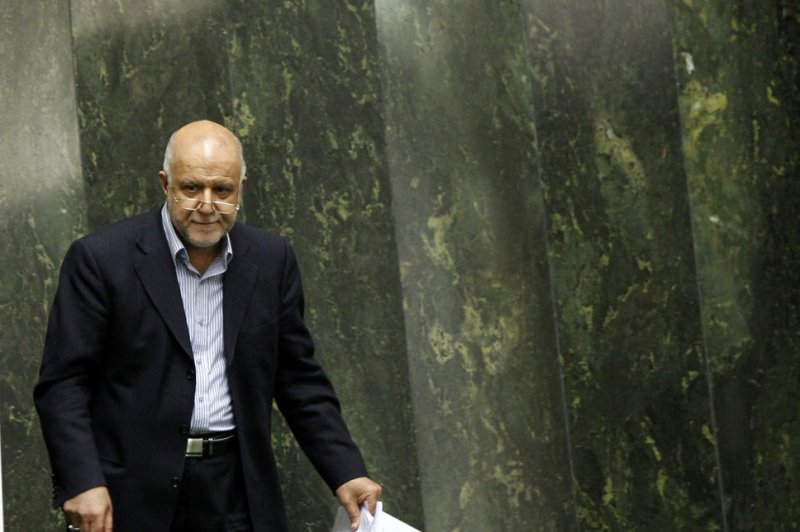No single voice represents the Organization of Petroleum Exporting Countries, Iranian Oil Minister Bijan Zanganeh said. File Photo by Maryam Rahmanian/UPI |
License Photo
June 13 (UPI) -- No single country speaks as the unified voice of OPEC as decisions must be made collectively, the Iranian oil minister said, according to state media.
Members of the Organization of Petroleum Exporting Countries meet next week in Vienna for the regular meeting. On the agenda is the fate of the group's coordinated effort to drain the glut of oil from the global market with production cuts.
Ostensibly, on the urging of the U.S. government, Saudi Arabia has signaled it could put more oil on the market in the second half of the year. Alexander Novak, the energy minister in Russia - the largest non-OPEC contributor to the supply agreement - has signaled he shared Riyadh's position.
On Wednesday, the official Islamic Republic News Agency cited Iranian Oil Minister Bijan Zangeneh as saying the voice of OPEC was a chorus, not a solo.
"Zangeneh pointed to comments by a number of OPEC members in recent days and said that no country is spokesperson for OPEC and all decisions of the organization should be taken by a consensus among all members," the report read.
Saudi Arabia, a political rival of Iran, is the de factor OPEC leader. The United Arab Emirates holds the rotating presidency. With U.S. sanctions pressure looming, Zanganeh called on the U.A.E. to consider OPEC statutes that states that regard should be given "at all times" to the interests of oil producing nations in terms of steady income and a regular supply of oil for consuming nations.
The Iranian government has been working with its European counterparts, meanwhile, to save the Joint Comprehensive Plan of Action from U.S. unraveling. Iranian President Hassan Rouhani said in a phone call with French President Emmanuel Macron the deal must be saved from U.S. whims.
"We must not let this great achievement of diplomacy be destroyed by others' unilateral actions unfaithful of their vows," he said.
U.S. President Donald Trump set a 180-day clock ticking May 8 when he pulled out of the JCPOA, leaving Iranian oil customers scrambling for alternatives in the face of looming U.S. sanctions pressures.
Trump's decision, meanwhile, to hit his European allies with tariffs has been met with frustration. Speaking Tuesday, Federica Mogherini, the European foreign affairs representative, said diplomacy was on display with Trump's meeting with North Korean leader Kim Jong Un, but stressed that diplomacy wasn't always easy.
On the Iranian deal, Mogherini stressed that non-U.S. parties remained committed to the agreement
"It is essential, it is vital for our own security and for the security of the region that implementation work continues, and we are guaranteeing that it happens regardless of the US withdrawal," she said in prepared remarks. "From this perspective, the U.S. decision to withdraw from the JCPOA and to re-impose all secondary sanctions is extremely problematic and needs to be addressed."















